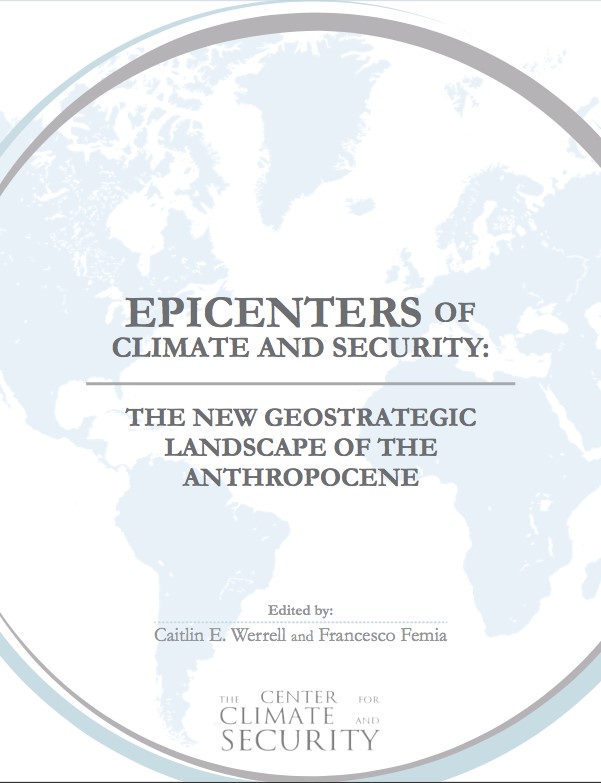
Atlantis 2.0: ASP on the Future of Small Island States
A recently released report on climate change and threats to security featured a chapter by ASP’s Andrew Holland, Director of Studies and Senior Fellow for Energy and Climate and Esther Babson, Climate Security Program Manager, titled, Atlantis 2.0: How Climate Change Could Make States Disappear – and What That Means for Global Security. The larger report highlighted 12 key “climate and security epicenters” that could shape the geostrategic landscape. Holland and Babson’s chapter focused on the threat of rising seas to the many low-lying small island states around the world and the potential security implications as those nations are submerged under the rising seas. Other chapters examined everything from “Eroding State Sovereignty” to “Tensions in a Melting Arctic” and “Enhanced Nuclear Risks.”
The authors begin by outlining the current risks already impacting small island nations, noting that “small island states with large populations near sea levels have already seen rates of sea level rise four times higher than global averages.” As with much of the world, a large percentage of the population lives along the coasts. The combination of higher than average sea level rise and high coastal populations, these islands are incredibly vulnerable. Even if the islands aren’t completely submerged, the costs of erosion, community displacement, and salt water intrusion on fresh water sources force people off the land.
The future looks to be just as concerning. Holland and Babson note that predictions vary but as the report explains, studies suggest that “sea levels could rise up to 3 feet by 2090, submerging Kiribati, Tokelau, and Tuvalu.” Such predictions bring up the question of what will happen to these countries once the seas take over? The authors highlight a few possible scenarios. First, countries can begin to buy land. The president of Kiribati has already announced the purchase of land in Fiji. Another response would be either planned or forced migrations between islands, or even between countries. We’ve already begin to see how forced migration can destabilize neighboring countries in Europe. Finally, there remains the question of who owns the resources within the country’s Exclusive Economic Zone (EEZ) once the seas submerge the island?
Holland and Babson conclude with a look at the geopolitical implications of islands disappearing and how the world should plan for this inevitable future. They point out that if the world fails to address these issues today, “we should be pessimistic about solving the real challenges of Atlantis 2.0 that could come decades later.”
For the full chapter, click here.
For the full report, click here.





